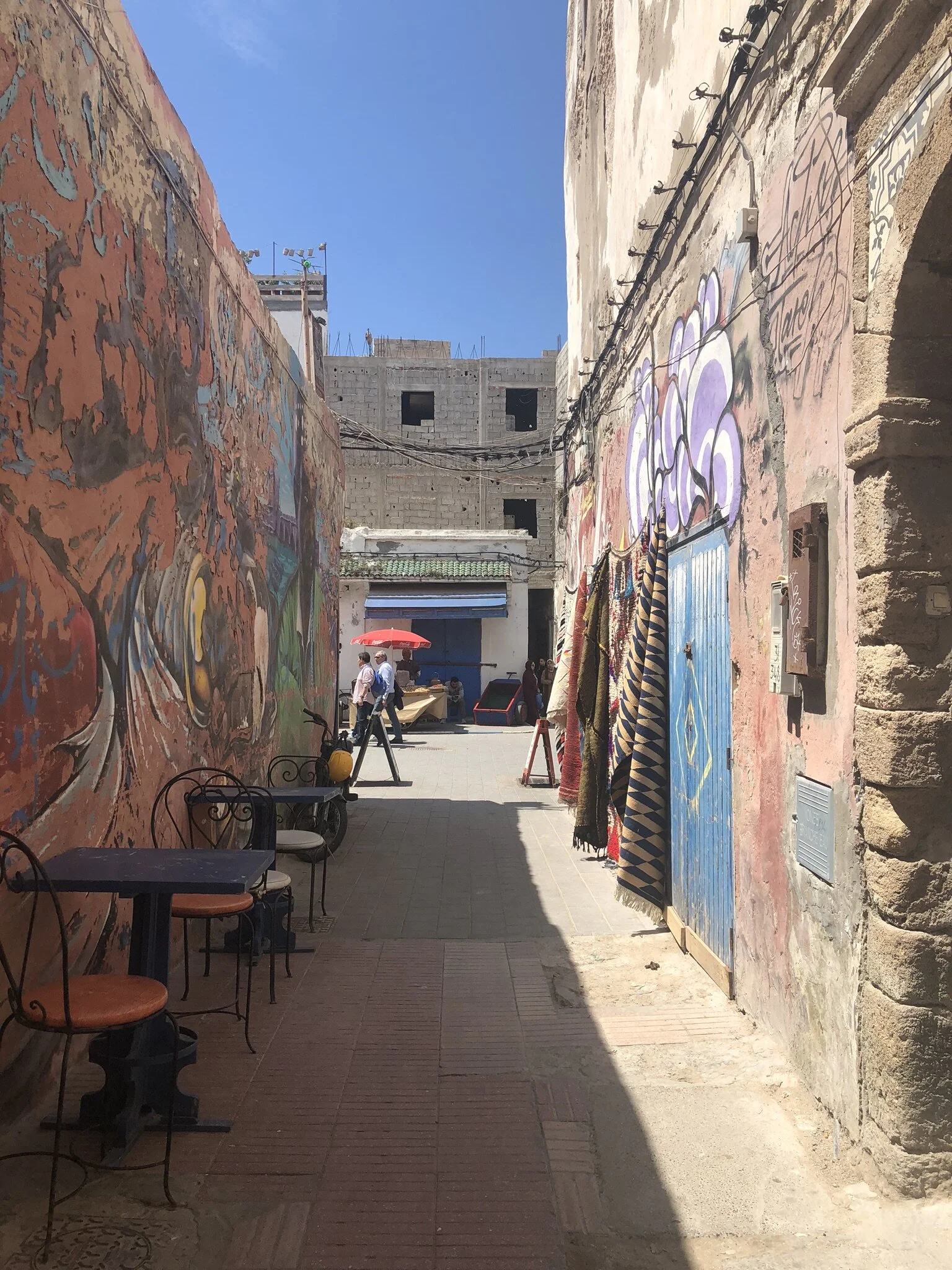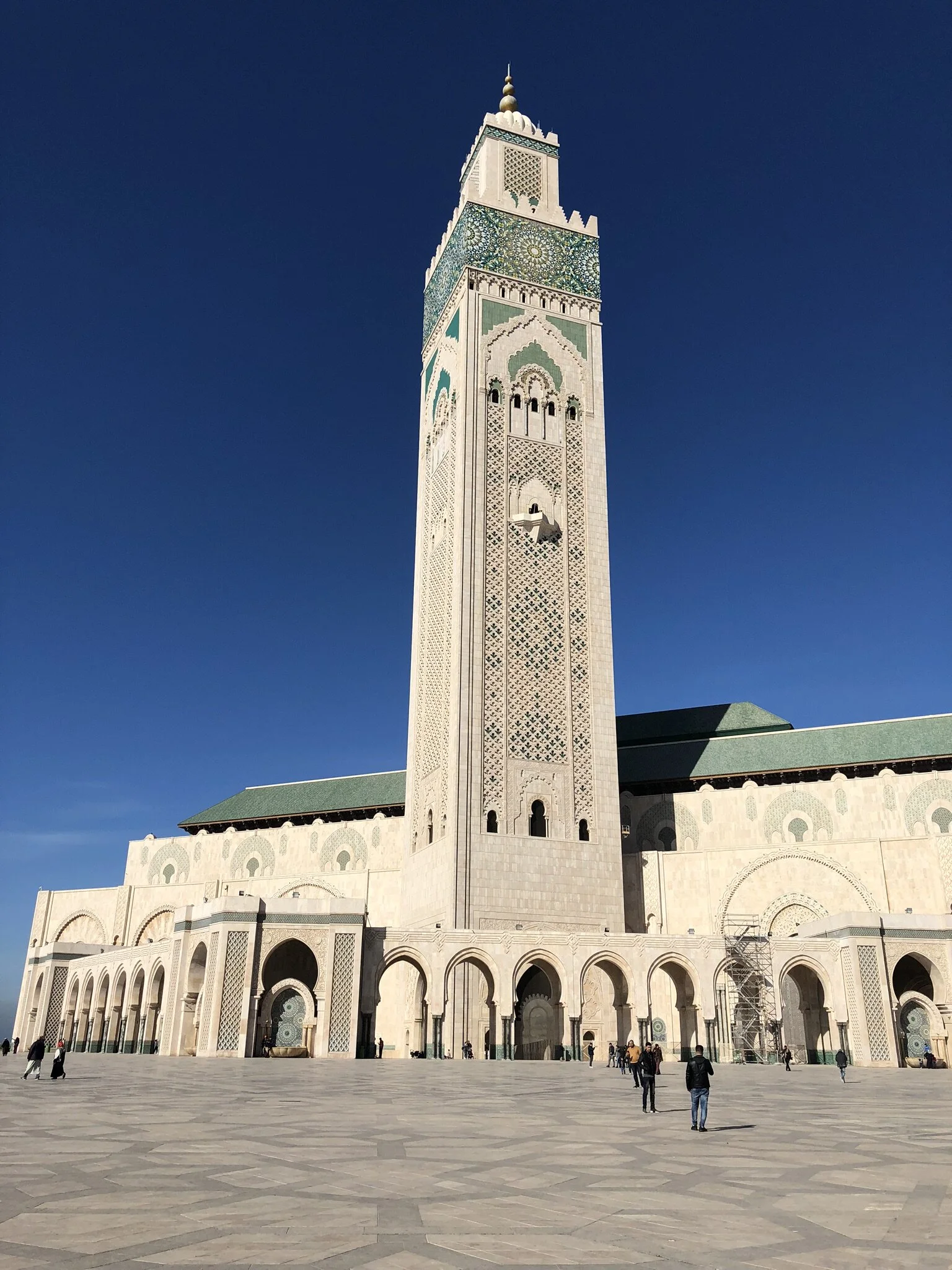Things to Know Before You Go to Morocco
Travel documents and requirements for Morocco
Do you need a visa for Morocco?
Before you book your flight and accommodation, you should check to see if a visa is required for visitors from your home country, and check your passport’s expiration date.
You can find out definitively whether you need a visa and if necessary apply for an eVisa via the platform found at www.acces-maroc.ma.
A valid passport is always required, and the validity may vary according to your country. Visitors from the U.S. must have a passport valid for six months beyond your planned date of travel.
Citizens holding passports of the following countries generally do not need a visa: Algeria, Andorra, Argentina, Australia, Austria, Bahrain, Belgium, Brazil, Bulgaria, Canada, Chile, Congo (Brazaville), Croatia, Cyprus, Czech Republic, Denmark, Estonia, Finland, France, Germany, Great Britain, Greece, Guinea (Conakry), Hong Kong, Hungary, Iceland, Indonesia, Ireland, Italy, Ivory Coast, Japan, Kuwait, Latvia, Libya, Liechtenstein, Lithuania, Luxembourg, Mali, Malta, Mexico, Monaco, Netherlands, New Zealand, Niger, Norway, Oman, Peru, Philippines, Poland, Puerto Rico, Qatar, Romania, Russian Federation, Saudi Arabia, Senegal, Singapore (can stay one month without a visa), Slovakia, Slovenia, South Korea, Spain, Sweden, Switzerland, Tunisia, Turkey, United Arab Emirates, United States of America, and Venezuela.
what to pack for morocco
1. Any prescription medications you need and any over the counter medications you use, since many are not available in Morocco. We recommend bringing some Imodium and electrolyte tablets, just in case.
2 . Adaptor/converter compatible with European chargers.
3. Electrolyte tablets
4. Sunscreen
5 . Wide brimmed hat.
6 . Loose fitting pants and long sleeved shirts for sun protection during the day, and smart casual attire for evenings in the cities.
7 . Appropriate footwear for hiking and walking - comfortable closed-toe shoe, a pair of sneakers and sandals for women in the warmer month
8 . Swimsuit and caftan or Turkish towel in the summer.
9 . Layering is always a good idea. We recommend a light jacket in spring and fall and a warm jacket for winter, especially if you’re going to the Sahara or Atlas Mountains.
10 . A backpack and daypack/belt bag if you plan on hiking.
11 . Travel size toilet paper/bathroom wipes or tissue packs.
12 . Eye mask and earplugs if you are light sleeper - especially if your hotel is near a mosque.
13 . A couple of cotton bandannas and one or two light scarves for women.
14 . Hair dryer, but make sure it’s a 220v compatible one.
15 . Hand sanitizer.
getting around morocco and keeping in touch
Of course the very best way to travel around Morocco is with one of our drivers, but if that isn’t your style or within your budget, there are many other ways to get around in Morocco.
Despite the large size of the country, traveling within Morocco by air is limited. There are airports in all major towns, but there are few flights between them, with the exception of daily flights between Marrakech and Casablanca airport. Air Arabia and Royal Air Maroc are two airlines offering flights within Morocco.
Trains are by far the best way to travel in Northern Morocco The TGV “Al Boraq” train runs between Casablanca and Tangiers and is in the process of expanding toward Marrakech. Ordinary train routes connect Marrakech with Casablanca and other Northern Cities such as Rabat, Fes, Kenitra and Ouijda.
The most economical way to travel around Morocco is by public bus. There are bus stations in all towns called Gare Routière ( Mahatta in Arabic) in which you can show up and by a ticket on the spot. The largest bus company in Morocco is called CTM.
You can also travel by shared taxis, called Grand Taxis, which have their own designated stations close to bus stations. These are often used for traveling to smaller towns or villages. If you can share a taxi with a few other people heading to the same destination it makes the journey fast and cheap.
You can also rent a car and drive yourself, but beware that contending with Moroccan drivers and traffic in the larger cities is not for the faint of heart. Moroccan drivers tend to take lane markings as mere suggestions, and the combination of cars, donkey carts, scooters, motorcycles, trucks, cyclists and buses on the streets can make for some hair-raising scenarios. Morocco is a place where the cost of transportation more than pays for itself in stress reduction.
Keeping in touch
You can use your roaming service in Morocco, and there is an excellent cell coverage throughout the country except for a few spots in the Sahara and in the Atlas Mountains. Roaming might become expensive though, so we suggest unlocking your phone before arriving in the country and getting a local carrier SIM card here, if you’re arriving by air you can get them at the airport by the luggage claim area. Hotel wifi can sometimes be very slow, especially in the rural areas, so it’s not a good idea to rely on it for high speed internet access. It is improving somewhat but having local Moroccan cell coverage will be the best and cheapest way to stay in touch while traveling in the country.
Moroccan Customs and Courtesies
taking photos in morocco
It is generally ok to take photos of street scenes, landscapes, etc. However, if you would like to take a photo of a person, ask permission first. If you find yourself in a big market or city square and you are invited to take a photo with a person, animal, or attraction - expect to pay 5-10 MAD for the experience. You may NOT take photos of police, army, royal guards, or anyone in uniform except in Rabat, where this is permitted.
public bathrooms in morocco
When traveling around the country, you can stop at cafés along the way to grab a drink and a snack. Even if you are a paying customer however, please be aware that you may be expected to pay 1 or 2 MAD to use the toilet, and it may be a squat toilet rather than the Western style you are used to. We recommend that you always have toilet paper or tissues with you as most restrooms don’t provide it. Hand sanitizer or a small bottle of liquid soap is also a good idea, as is a cotton bandanna to dry your hands after washing.
languages in morocco
Many Moroccans in the larger cities speak English, and most Moroccans speak French in addition to the Moroccan dialect of Arabic called Darija. Moroccans are friendly people, and a few simple Darija phrases will be helpful and charm the locals. (These are spelled phonetically because Darija is not a commonly written language.)
salaam (al alaikum) - hello. la bes - an informal greeting, such as with friends, (it’s repeated in response, like ça va in French.). mezyan - literally “good” - all is well. besh’aal - how much? afak - please la shokra alla wajib - you’re welcome la - no wakha - yes or ok shokran - thank you la shokran - no thank you safi - understood/enough (literally “clear”) mashi mushki - no problem mafhemtsch - I don’t understand. beslemma - goodbye
how to dress in morocco
Though many online resources and guidebooks suggest that women should cover up while traveling in Morocco, it really isn’t necessary. If you’re traveling in Morocco in the summer it will be extremely warm, and you can wear ordinary summer clothes, including shorts, tank tops, and flowing dresses, anywhere you wish. The only time it is necessary to dress conservatively is if you are planning to visit a mosque. In that case, you should wear pants or a dress falling below the knee and cover your shoulders. It is not necessary to cover your hair at any time.
The only functioning mosque in Morocco open to visitors is the Hassan II mosque in Casablanca, pictured at left. This is the largest mosque in Africa, with the tallest minaret in the world. Even if you don’t have time to go inside, we recommend visiting the outside to take in the exquisite tile work and breathtaking view of the sea.
shopping in morocco
In Morocco it is customary to bargain for handicrafts, clothes, rugs, leather goods, pottery etc., particularly in the souks. Curated boutiques and chain stores are not receptive to this, and it is not acceptable to bargain for food or groceries.
Almost all vendors in the cities of Morocco speak enough English to complete a transaction with you, or will be able to find someone who can. The most important thing to know is that once you start bargaining for something and give a price, you will be expected to buy it for that price if the vendor accepts. They will often accept your last number, and may even follow you in the market after you have walked away to do so. For this reason, it’s best not to start the haggling process unless you’re pretty sure you want to buy something. Have them display prices for you on a calculator, so you can see the number and assume that most transactions will be in cash as credit cards may not be accepted. (A cash price may also be slightly lower.)
It’s also a good idea to do some research on the prices of items you plan to shop for ahead of time, so you have an idea of what you should be paying. If someone doesn’t negotiate with you in good faith, walk away. There are plenty of other places to shop.






